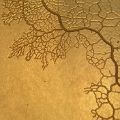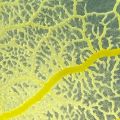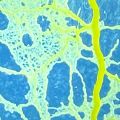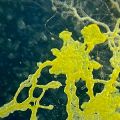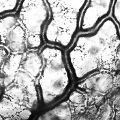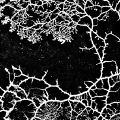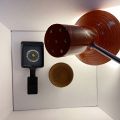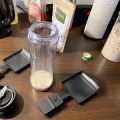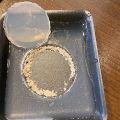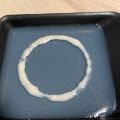No edit summary |
|||
| Line 36: | Line 36: | ||
<gallery> | <gallery> | ||
File:Accident.jpeg|Figure 11 :: photography | |||
File:Accident2.jpeg|Figure 12 :: close-up shot | |||
File:Accident3.jpeg|Figure 13 :: „on the bottom“ | |||
</gallery> | </gallery> | ||
== ijg == | == ijg == | ||
Revision as of 14:15, 27 November 2021
Phase 1 :: Basic Research
In order to develop a meaningful project idea about and with Physarum polycephalum, I came to the conclusion that I must first explore the artistic qualities as well as the growth process of the slime mold. In the course of this, some photos and videos were made with the help of the microscopes available in the laboratory. Especially the vein-like structure and the nutrient transport of the slime mold were examined more closely with the help of photo- and videographed material. This resulted in a variety of aesthetically pleasing results.
Phase 2 :: Time Lapse – Growth Research :: Social Slime?
In the second phase, Physarium polycephalum was studied using time-lapse photography. Time-lapse recordings were tried out in different settings in order to build up a functioning set-up for the examinations/recordings.
Figure 7 shows the setup used for the subsequent recordings. A raclette pan filled with agar provides a soft, dark background and the appropriate growth base, while a floor lamp is used to ensure even illumination. A white, reasonably light-tight box with a lid protects the recordings from other light sources. In figure 8, preparations are made for a two-part case study called "social slime?". It asks how the growth of Physarium polycephalum behaves when the slime mold grows in a (circular) zone that provides it with enough food. Does it stay in the area it knows, an area without enemies and with enough food? Or is its urge to explore – in other words, perhaps its social behavior – so great that it moves away from its „home“, to meet other species and new food sources.
For experiment one, a circular strip was removed from the agar layer. Oats were added to the excised area to surround the slime mold with it. The cutting out resulted in a shrinkage of both layers, and an unintended expansion of the cut-out area. Nevertheless, a certain urge towards the food-covered area could be observed, which stands contradictory to an urge to discover and thus a "social behavior“. In the second case, a circular area of finely ground oatmeal was applied to the agar layer. The growth of Physarium polycephalum in this experiment contradicted the previous study. The slime mold spread over the entire agar surface, regardless of the circular food source.
A beautiful accicent...
